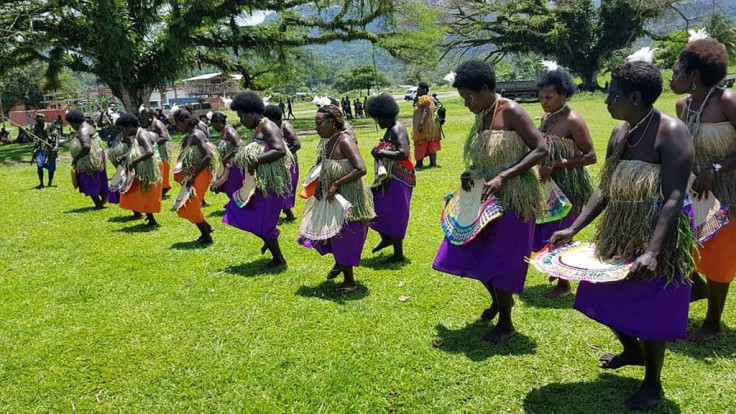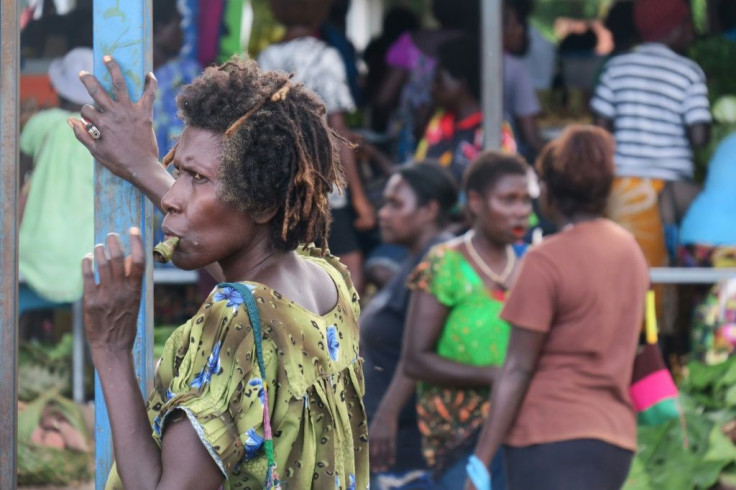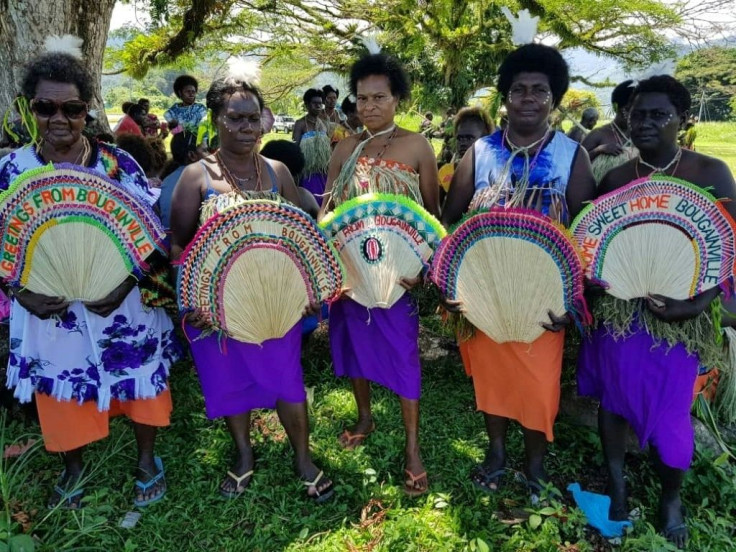Bougainville Independence Vote Could Trigger Race For Influence

The resource-rich Pacific archipelago of Bougainville will hold a landmark referendum Saturday on independence from Papua New Guinea, a vote that could create the world's newest nation and prompt a dash for influence among regional powers.
Voters in the verdant, conflict-marked isles will decide if they want independence or greater autonomy within PNG, an ethnically diverse nation of eight million.
The referendum is designed to draw a line under a brutal 10-year civil war that killed 20,000 people -- 10 percent of the population -- before it ended in 1998.
Just over a quarter of a million people live in Bougainville, and around 200,000 people -- including those who live outside the territory -- are eligible to vote during two weeks of polling, with results expected around December 15.
Chief referendum officer Mauricio Claudio called the poll the "continuation of a long, successful peace process" that quieted a complex war between separatist factions, Papua New Guinea security forces, proxy groups and foreign mercenaries.
The vote "should not give rise to violence or conflict", Claudio said Tuesday in Buka, the region's main city. "It should be a joyous event."
Ahead of the referendum, once-sworn enemies have taken part in tearful reconciliation ceremonies, where arrows were snapped to symbolise the end of the conflict.

With no reliable public opinion polls, the outcome of the vote is uncertain and Papua New Guinea's parliament would have to decide whether to ratify the result under a 2001 peace deal.

But voters -- many of whom share more cultural affinity with the neighbouring Solomon Islands than Papua New Guinea -- are expected to back independence in "overwhelming" numbers, according to Jonathan Pryke of Sydney's Lowy Institute.
That could instantly make Bougainville a new front in the battle for influence being waged between China, the United States and Australia across the South Pacific.
The islands are among the poorest in the southern hemisphere and the need for cash to build infrastructure, develop institutions and balance the books "creates an opportunity for actors like China to get involved", said Pryke.
"If China is going to be scrambling to engage," he said, "Australia and New Zealand will be scrambling faster."

Attuned to regional rivalry, Martin Miriori and other senior figures in Bougainville's independence movement have already warned they could look to Beijing if Western countries "do not play their cards right" and support independence with words and deeds.
"We will have no choice but to turn to other countries including perhaps China, to be finally given our freedom," Miriori said in a statement this week.
If voters do back independence, it is not certain that the parliament of Papua New Guinea would ratify the decision.
Insiders in Port Moresby say there is widespread unease at the prospect of splitting PNG and creating a precedent for other strong regional identities in the country.
But international pressure to respect the referendum could be overwhelming.
Experts are already drawing parallels to a non-binding independence referendum in East Timor, which was ultimately accepted by a reluctant Indonesian government.
A rejection could risk torpedoing the peace process and rekindling old grievances.
The 1988-1998 war was fuelled by a struggle over revenues from a vast copper mine, which is again set to come into focus.
At one point the vast Panguna mine accounted for more than 40 percent of Papua New Guinea's exports, but it has been shuttered since 1989.
Bougainville Copper Limited estimates that the mine still holds more than five million tonnes of copper and 19 million ounces of gold -- worth tens of billions of dollars at current market prices.
Any decision to restart it would likely require billions of dollars in foreign investment.
"China may be willing to take that risk and in order to build a huge amount of influence with a fledgeling new nation," said Pryke.
© Copyright AFP 2024. All rights reserved.




















